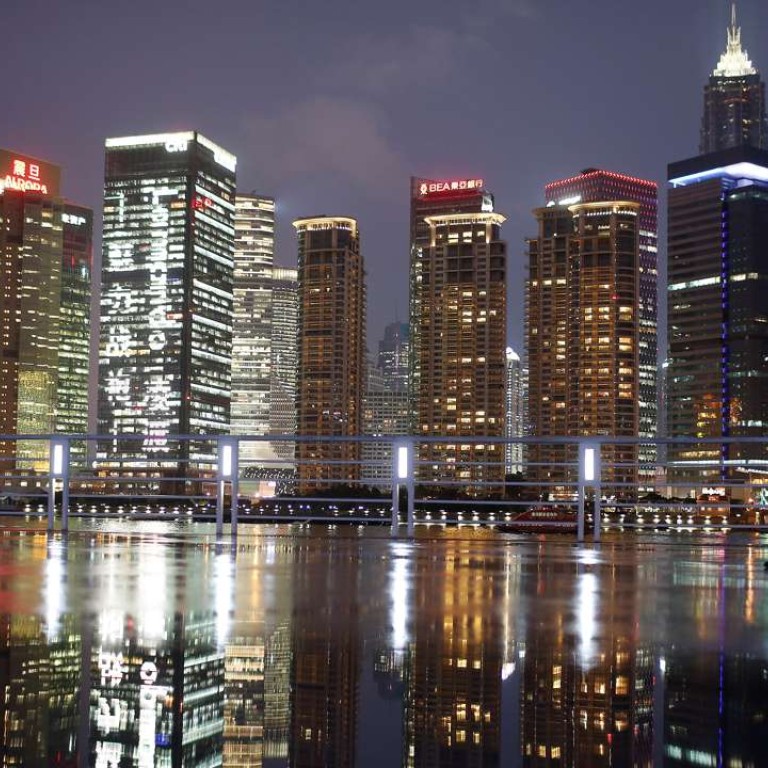
May could be a great time to bail out of China stocks
Yes, you should sell A shares this May, as the old adage says.
That’s the message from some analysts, as an anti-corruption storm is brewing in the financial sector, which has already jarred investors’ nerves and sparked panic capital flight from speculative stocks.
“2017 will be a bumper year for the anti-corruption campaign in the financial sector,” the People’s Daily said in a recent post at its official Weibo account. The People’s Daily is the Communist Party’s mouthpiece.
“Xiang Junbo has fallen, but the show is yet to come,” the newspaper said.
On Monday, the Central Organisation Department announced that Xiang Junbo, the head of the China Insurance Regulatory Commission (CIRC), was sacked for “serious violations of party discipline”, without giving further details. In February, the CIRC banned tycoon Yao Zhenhua, who had launched a hostile takeover bid for China Vanke, from the insurance industry for 10 years.
Earlier this month, Yang Jiacai, assistant chairman of the China Banking Regulatory Commission, was put under investigations, media reports said.

At the end of March, the China Securities Regulatory Commission (CSRC) imposed a historic 3.47 billion yuan (US$503.72 million) penalty on Xian Yan, former chairman of Shanghai Duolun Industry, for alleged “stock manipulation”, while also banning him from securities trading for life.
“The situation is getting tense,” said Yan Kaiwen, an equity analyst at China Fortune Securities. “The most important thing is that regulators are tightening the screws.”
On Saturday, the CSRC bulletined 16 cases of “malicious market manipulation” involving speculative trading on IPO stocks and so-called “sub-new stocks”, newly-listed companies that are yet to pay a dividend.
“We will resolutely clamp down on any attempt at disturbing the market order and never relent in our fight,” said Liu Shiyu, chairman for the CSRC, at a separate event over the weekend.
Xun Yugen, chief strategist for Haitong Securities, advised A-share investors to “sell in May”.
“Beware of a cold spell in later spring,” he said, citing concerns on the “policy side”.
De-leveraging is the priority of Chinese authorities in 2017, but it will cause a liquidity squeeze in financial markets and a spike in interest rates, Xun said.
The A-share markets may have gotten the first sniff of danger.
More than a dozen of stocks plummetted last week without any major news, including Ping An Insurance, Industrial Bank, Jiangsu Xiuqiang, and Guangdong Super Telecom.
“The ‘flash crashes’ in these stocks’ prices suggest money has started to escape without considering the cost,” Yan said.

“I think they have noticed the risks and reacted early.”
Coincidentally, the recent buying frenzy on Xiongan-related stocks seemed to have cooled down after a week of share surges.
Last week, 14 Chinese companies were suspended from share trading, citing the need to evaluate the potential impact from Xiongan, a new special economic zone that Beijing plans to build in Hebei province, following the successes of the Shenzhen Special Economic Zone and the Shanghai Pudong New Area.
The evaluation is “at the instigation” of the regulators, the state-run China News Agency quoted unnamed sources as saying.
The Shanghai Stock Exchange also said in a statement that it has noticed the “excessive speculation” on Xiongan-related stocks and will impose “stricter” measures to regulate the trading.
On Monday, several Xiongan-related stocks resumed trading, but their performances were mostly weak. Rigging and sling product maker Juli Sling, property developer China Fortune Land Development, XuanHua Construction Machinery, all sank by their allowable daily limit of 10 per cent.
The broader market’s sentiment has also waned.
The benchmark Shanghai Composite closed down 0.8 per cent on Tuesday, extending its losing streak to a third straight session, and adding to 1.2 per cent loss last week.
“The hot money will become cautious in the short run. The speculation on sub-new stocks and hot stocks will also enter a ‘silence period’,” Yan said.
“This will lead to a rapid drop in risk sentiment and a waning of risk appetite. Short term risks are rising.”

On the external front, other risks abound.
Xun from Haitong Securities suggested investors keep a close eye on US President’s three major policies on immigration, income tax cuts, and border tax, which could “further complicate trade frictions between China and the US”.
In addition, geopolitical issues on the Korean peninsula and in Syria may also have an outsized effect on the stock market, he added.

